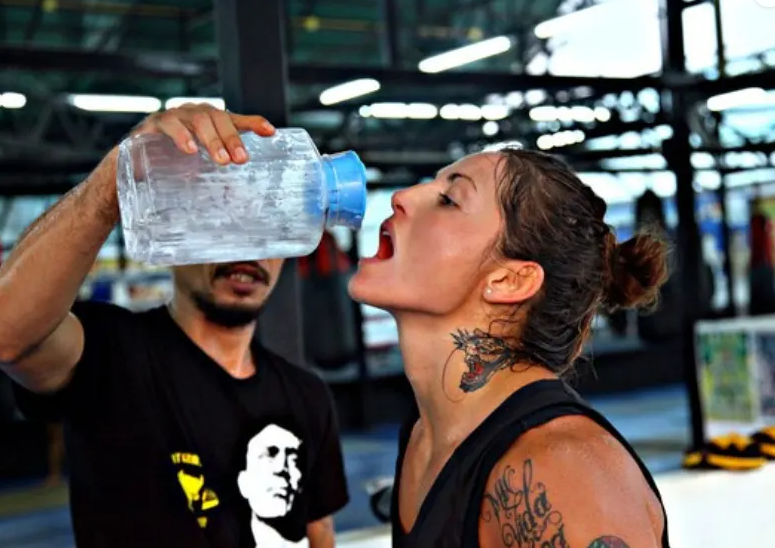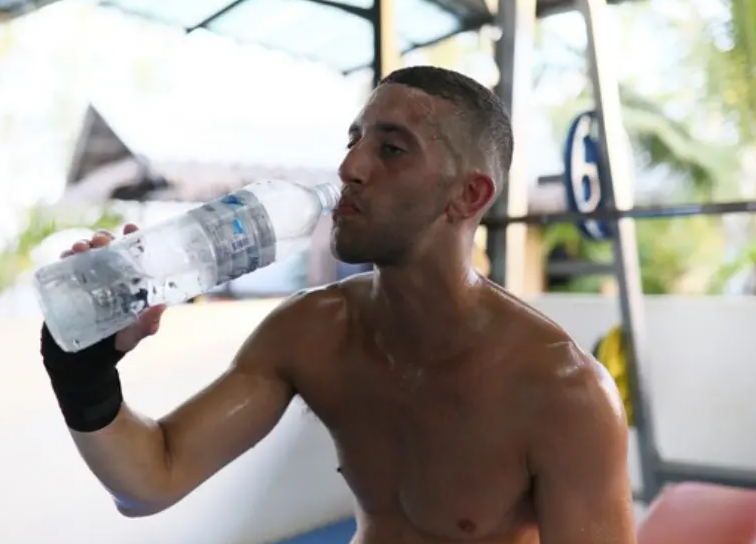Muay Thai Health&Safety
Hydration Strategies for Muay Thai Fighters
Introduction
Hydration is a crucial aspect of any athlete’s regimen, particularly for Muay Thai fighters who undergo intense physical training. Proper hydration strategies can significantly impact performance, endurance, and recovery. This article delves into effective hydration techniques specifically tailored for Muay Thai practitioners, offering a comprehensive guide to maintaining optimal hydration levels.
Importance of Hydration in Muay Thai
Why Hydration Matters
Hydration plays a pivotal role in maintaining the overall health and performance of Muay Thai fighters. Adequate hydration ensures that the body functions efficiently, supporting muscle function, joint lubrication, and temperature regulation.
Effects of Dehydration
Dehydration can severely impair physical performance, leading to decreased strength, endurance, and cognitive function. For fighters, this can mean slower reaction times, impaired decision-making, and increased risk of injury.
Understanding Fluid Loss
Sweat Rates and Fluid Loss
During intense Muay Thai training sessions, fighters can lose significant amounts of fluid through sweat. Understanding your sweat rate is essential to determine how much fluid needs to be replaced.
Environmental Factors
Training in hot and humid conditions increases fluid loss. Fighters need to account for environmental factors and adjust their hydration strategies accordingly to prevent dehydration.
Pre-Training Hydration
Hydrating Before Training
Starting training sessions well-hydrated is crucial. Fighters should aim to drink 500-600ml of water 2-3 hours before training and an additional 200-300ml 20-30 minutes before starting.
Types of Fluids to Consume
Water is the primary source of hydration, but sports drinks containing electrolytes can be beneficial, especially during longer training sessions. These drinks help maintain electrolyte balance and prevent cramping.
During Training Hydration
Staying Hydrated During Sessions
Regular sips of water during breaks can help maintain hydration levels. Fighters should aim to drink about 150-200ml every 20 minutes, depending on their sweat rate.
Signs of Dehydration During Training
Common signs of dehydration include excessive thirst, dry mouth, dizziness, and fatigue. Recognizing these signs early can help fighters take immediate action to rehydrate.
Post-Training Hydration
Rehydration After Training
Post-training hydration is critical for recovery. Fighters should aim to drink 1.5 liters of water for every kilogram of body weight lost during training.
Best Fluids for Recovery
In addition to water, recovery drinks that contain a mix of carbohydrates and electrolytes can aid in faster recovery and replenishment of glycogen stores.
Electrolyte Balance
Role of Electrolytes in Hydration
Electrolytes like sodium, potassium, and magnesium are vital for maintaining fluid balance, muscle function, and preventing cramps.
Sources of Electrolytes
Electrolytes can be replenished through sports drinks, electrolyte tablets, or natural sources like bananas, nuts, and leafy greens.
Hydration and Diet
Foods that Aid Hydration
Certain foods have high water content and can aid hydration. These include fruits like watermelon, oranges, and strawberries, as well as vegetables like cucumber and lettuce.
Avoiding Dehydrating Foods and Drinks
Fighters should limit intake of caffeine and alcohol as they can contribute to dehydration. Salty and sugary foods should also be consumed in moderation.
Hydration Strategies for Competition
Pre-Fight Hydration
Ensuring optimal hydration before a fight is crucial. Fighters should follow a hydration plan that includes drinking water and electrolyte-rich fluids in the days leading up to the competition.
During-Fight Hydration Techniques
Between rounds, fighters should take small sips of water to maintain hydration levels without causing stomach discomfort.
Post-Fight Rehydration
After a fight, immediate rehydration is essential. Consuming a mix of water and sports drinks can help restore fluid and electrolyte balance.
Monitoring Hydration Levels
Tools and Techniques for Monitoring Hydration
Using tools like urine color charts, body weight measurements, and hydration apps can help fighters monitor their hydration status effectively.
Importance of Regular Monitoring
Regular monitoring allows fighters to adjust their hydration strategies as needed, ensuring they remain well-hydrated during training and competition.

Customized Hydration Plans
Creating a Personalized Hydration Plan
Each fighter’s hydration needs are unique. Creating a personalized plan based on individual sweat rate, training intensity, and environmental conditions is essential.
Adjusting Plans Based on Individual Needs
Hydration plans should be flexible and adjusted based on feedback and monitoring results to ensure optimal hydration at all times.
Common Hydration Myths
Debunking Myths About Hydration
Myths such as “only drinking when thirsty” can lead to inadequate hydration. Fighters need to understand that thirst is not always a reliable indicator of hydration needs.
Understanding True Hydration Needs
Educating fighters on their true hydration needs helps in maintaining optimal performance and avoiding the pitfalls of common hydration myths.
Practical Hydration Tips
Everyday Hydration Tips for Fighters
Incorporate regular drinking habits into daily routines, such as drinking a glass of water with every meal and keeping a water bottle handy throughout the day.
Incorporating Hydration into Daily Routine
Making hydration a part of the daily routine ensures that fighters remain consistently hydrated, enhancing overall health and performance.
FAQs about Hydration in Muay Thai
How much water should a Muay Thai fighter drink daily?
A Muay Thai fighter should aim for at least 3-4 liters of water per day, adjusting based on sweat rate and training intensity.
Can sports drinks be a substitute for water?
While sports drinks can supplement hydration, especially during intense training, they should not completely replace water. They are best used for replenishing electrolytes.
Is it possible to overhydrate?
Yes, overhydration, or hyponatremia, can occur if too much water is consumed without adequate electrolyte intake. Balance is key.
How can fighters monitor their hydration status?
Fighters can monitor hydration through urine color, body weight changes, and hydration tracking apps.
What are the signs of severe dehydration?
Severe dehydration signs include extreme thirst, dark urine, dizziness, rapid heartbeat, and confusion. Immediate rehydration is necessary.
Are there any specific foods that help with hydration?
Yes, fruits and vegetables with high water content, such as watermelon, oranges, cucumbers, and tomatoes, can aid in hydration.
Conclusion
Proper hydration is a cornerstone of effective training and performance for Muay Thai fighters. By understanding the importance of hydration, recognizing signs of dehydration, and implementing tailored hydration strategies, fighters can ensure they perform at their best and recover efficiently. Stay hydrated, stay strong, and keep fighting.

